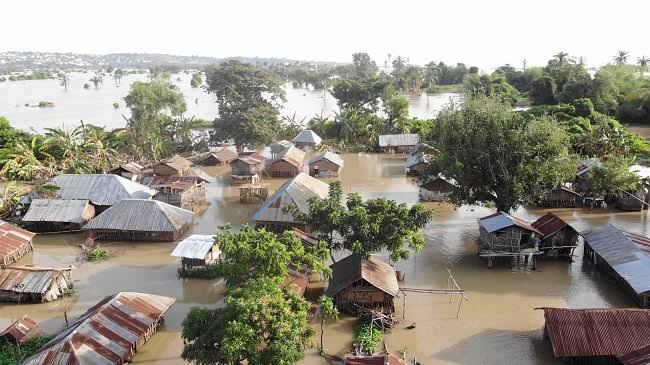After the River Benue’s rogue activities during the rainy season, the Federal Government is relocating 10,000 people from the Mosun Village in the Bassa Local Government Area of Kogi.
The Hydro-Electricity Power Producing Areas Development Commission’s (HYPPADEC) Managing Director, Alhaji Abubakar Yelwa, announced this on Monday while touring the Mosun Community’s impacted neighbourhoods.
Yelwa said that after the 2022 flood’s detrimental effects forced locals to flee their homes in search of safety, it became necessary to relocate the afflicted populations.
Earlier, the traditional ruler of the Mosun Kingdom, Alhaji Burka Ali, told the HYPPADEC boss and his
It was reported that the visit of the commission to the Mosun kingdom was spiced with the award of chieftaincy title to the HYPPADEC boss and Alhaji Isa Ozi-Salami, the Kogi Representative on the governing board of the commission.
While Yelwa was crowned as the “Ondaihi” (Galadima) of Bassa Land, Ozi-Salami was crowned the “Oniereza Ogbanyi of Mozum kingdom.
ECONAIPLUS reports that NiMET warned Nigerians to prepare for an earlier-than-expected onset of rainfall in most parts of Nigeria.
Starting on or around March 2, NiMET said, the coastal areas of the south-south comprising Bayelsa, Rivers, and Akwa-Ibom will see heavy rainfall.
NiMET said an extended rainfall season is predicted to occur in Gombe, Kaduna, Kwara, Enugu, Anambra, western Ogun, and Lagos states.
Read Also: cjid-cij-collaborate-to-promote-climate-change-reporting-in-west-africa
The northern states of Sokoto, Kebbi, Zamfara, Kano, Katsina, Jigawa, Yobe and Borno will have an onset of rain between June and July.
Peak rainfall would be between July and September.
It said the coastal zone of the South-south states of Bayelsa, Rivers, and Akwa Ibom will observe unpleasant rainfall changes.
NiMET also said the central states are likely to wait until May while Katsina, Zamfara, Kano, Jigawa, Yobe, Cross River, Ebonyi, Imo, and Rivers will experience delayed onset of rainfall.
For Sokoto, Kebbi, Zamfara, Kano, Katsina, Jigawa, Yobe and Borno the rains will not begin until June and July. Only Adamawa, Bauchi, Gombe, Kwara Gombe, Kwara, Oyo, Ogun, and Lagos will be near normal but with a worrisome quantity.
NiMET added that the noticeable increase in climate change and human-triggered activities including indiscriminate dumping of wastes will cause more floods in 2023 and that the waters will come in high intensity within a short duration.
Story adapted from The Guardian
